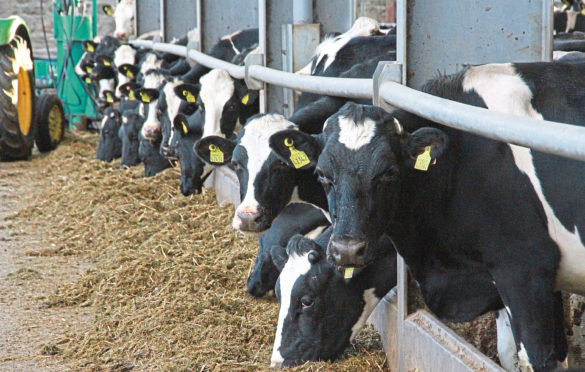A new study has been launched to help dairy farmers control feed waste.
The study, run by global animal feed and nutrition firm Alltech, will assess the total level of feed waste onfarm, which experts believe could be as much as 45%.
“There are multiple areas where food waste can occur, starting within the field, during storage and feeding out, through to metabolic and environmental aspects when fed to the cow,” said Alltech’s retail programmes manager Ian Leach.
“While through our understanding of some of the core areas we can estimate that on average 25 to 45% of feed is not being converted into yield, it isn’t something that’s currently closely monitored or managed on-farm.”
He said the pilot study would examine feed waste on a range of dairy farms across the UK to assess the true scale of the problem.
It will focus on the various areas where feed waste can occur, measuring a variety of different critical control points.
“We’ll be working alongside silage and grassland experts to monitor loses occurring within the field and forage clamps, as well as looking for potential inefficiencies during feeding-out,” said Mr Leach.
He said rumen losses would form a key part of the on-farm assessment, while the environment, cow health and fertility were also vital parameters.
“It’s estimated that over 25% of the feed consumed is not utilised by the cow for production, and this figure would be significantly higher if the cow was suffering from a metabolic disease or illness,” added Mr Leach.
“The assessment will look at the general environment including space to access feed and water, ambient temperate, ventilation and light, and key health and fertility parameters will also be recorded.”
He said by assessing the current level of waste, farmers could benchmark and implement a successful waste reduction plan going forward.
The results from the study will be released at the Dairy-Tech event at Stoneleigh Park, Warwickshire, in February.
